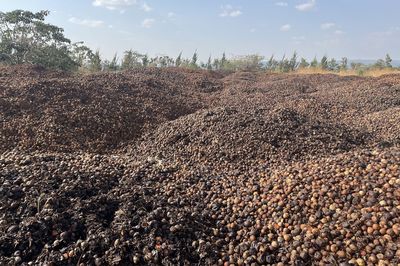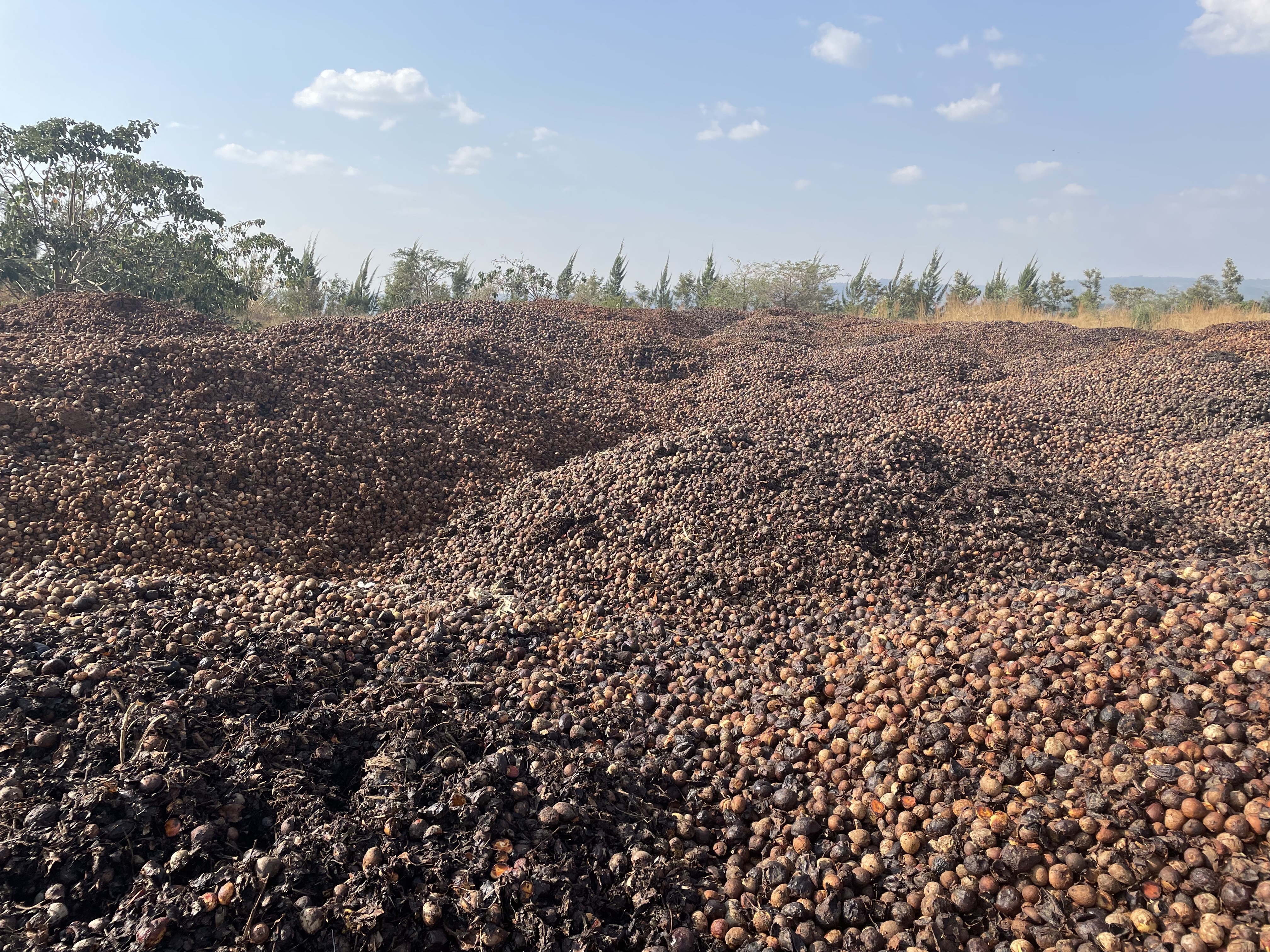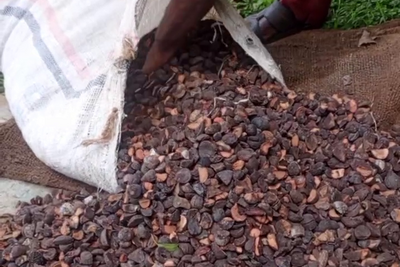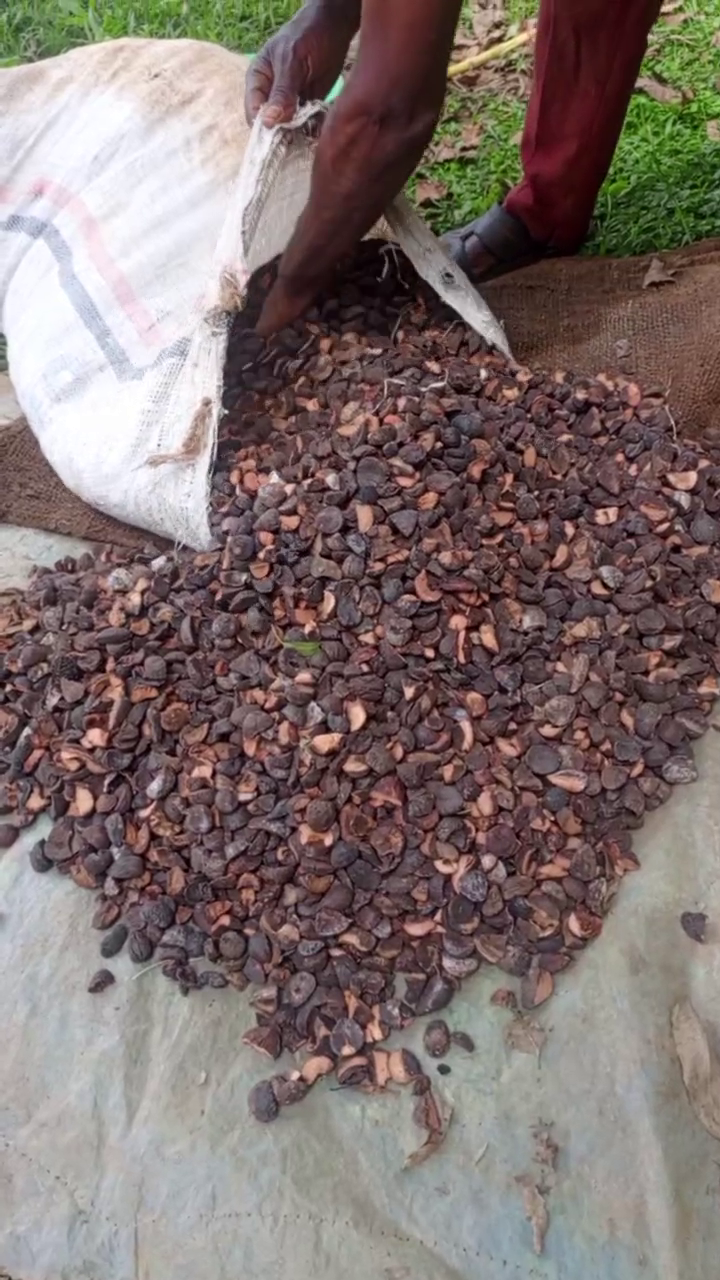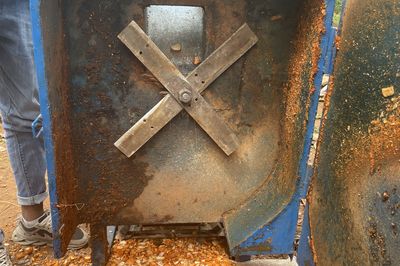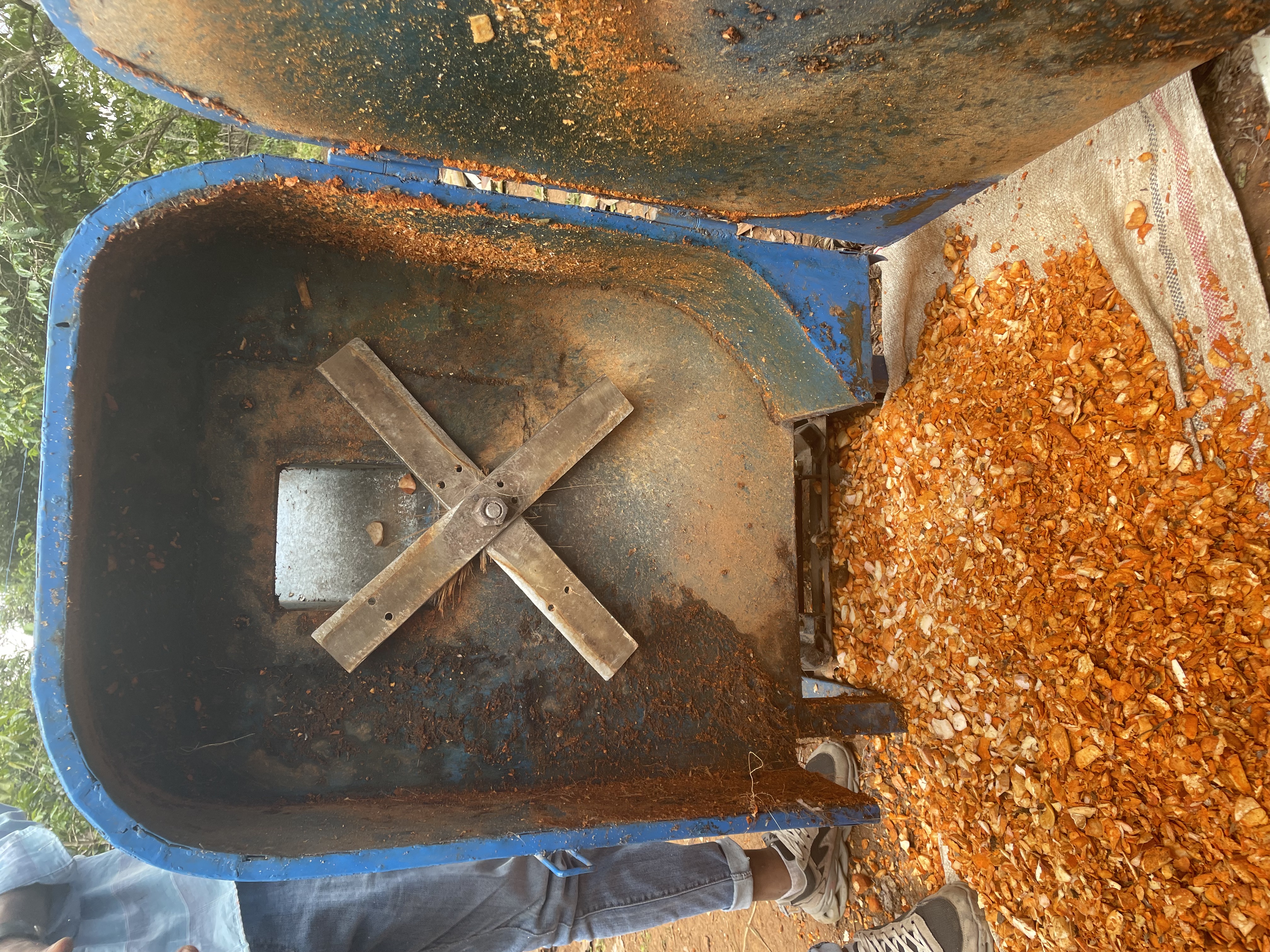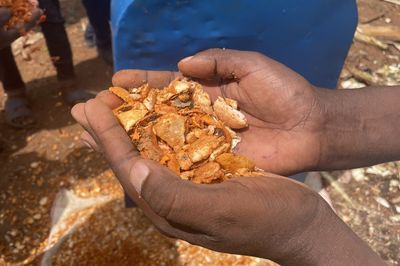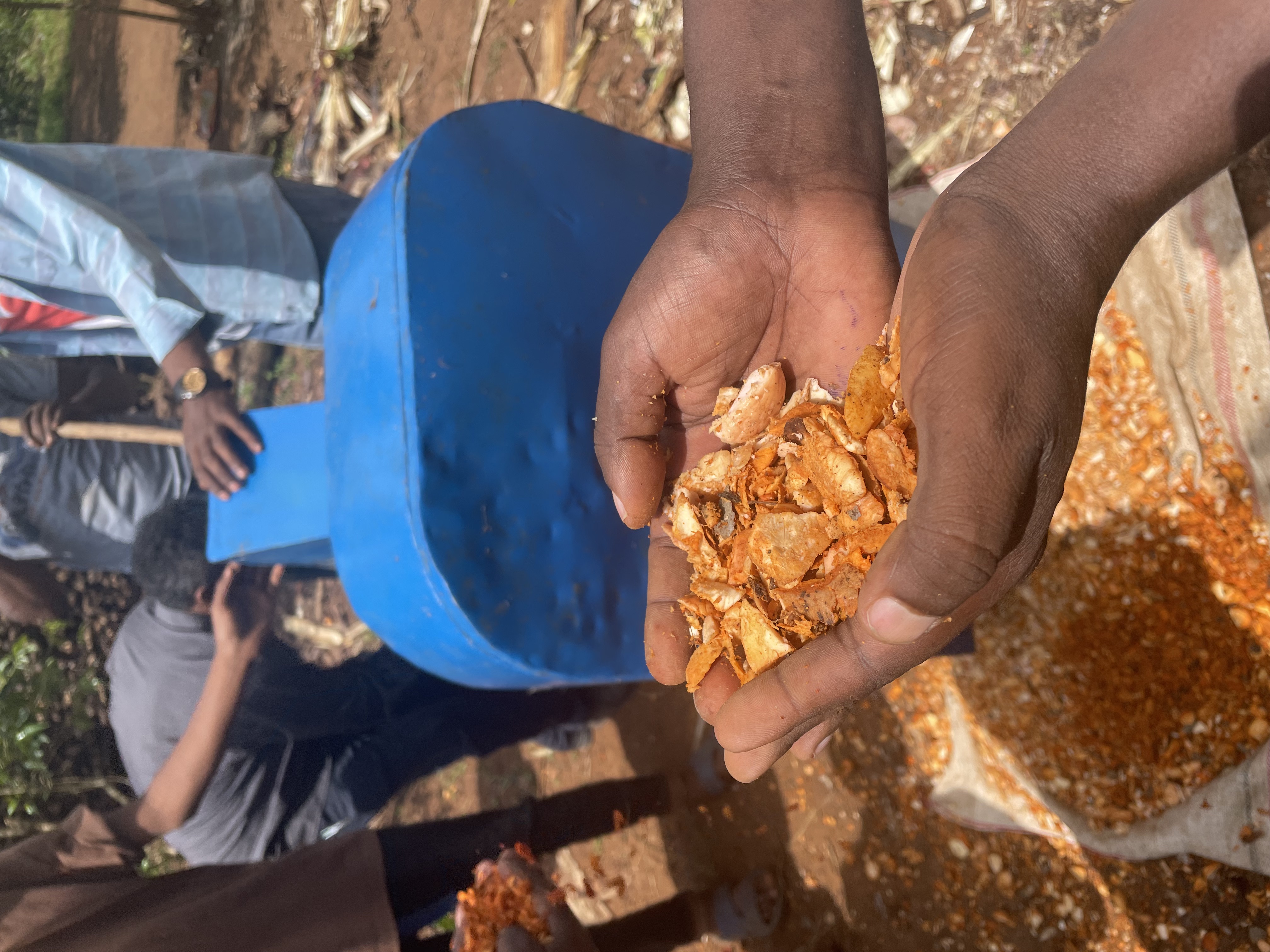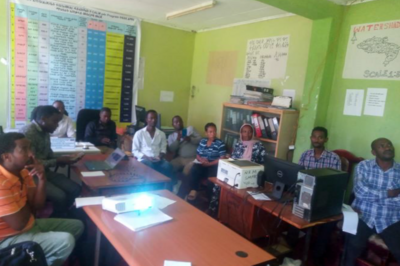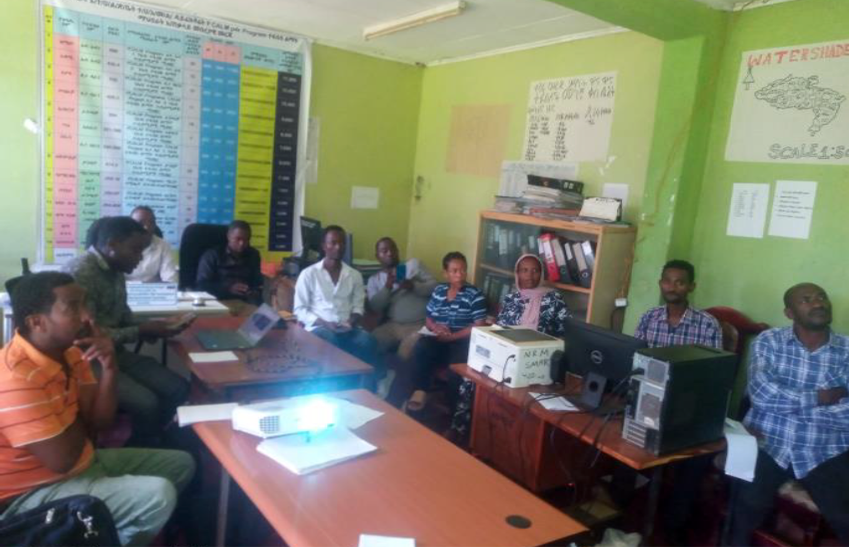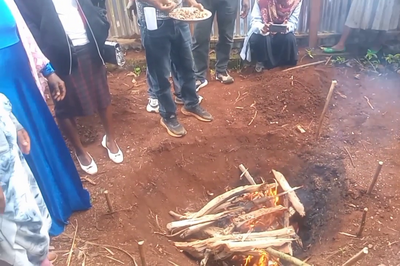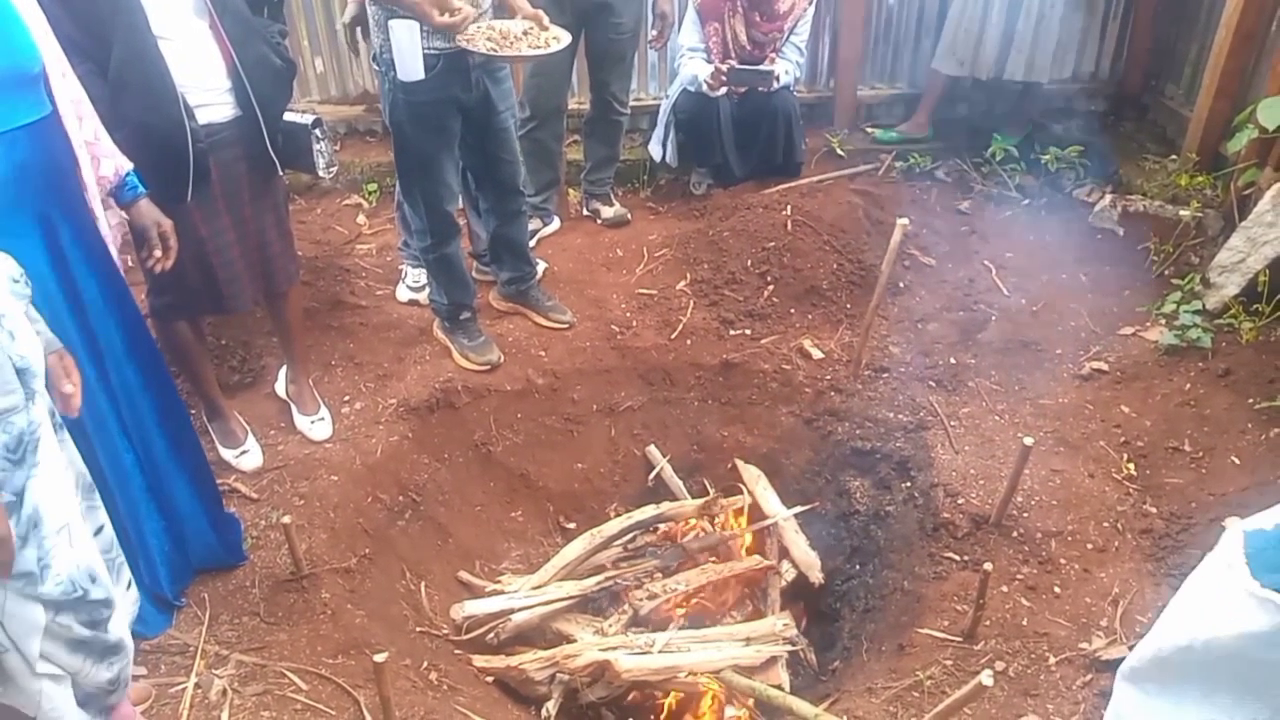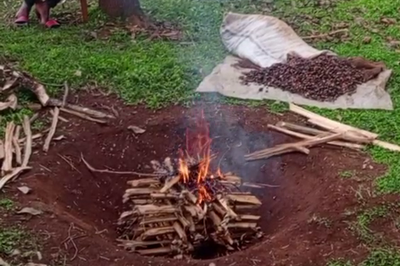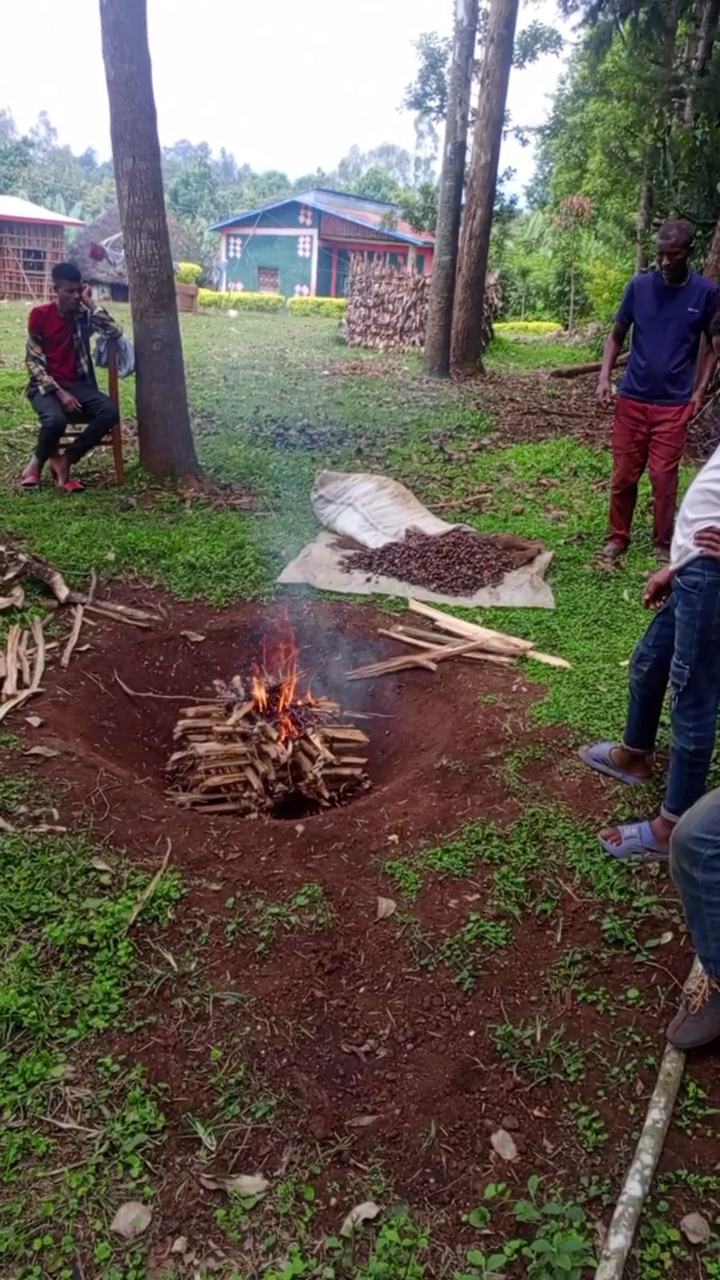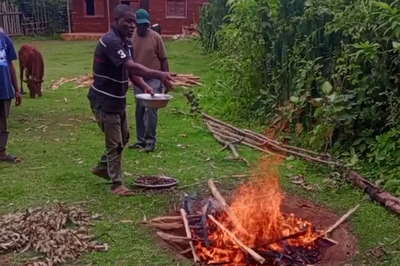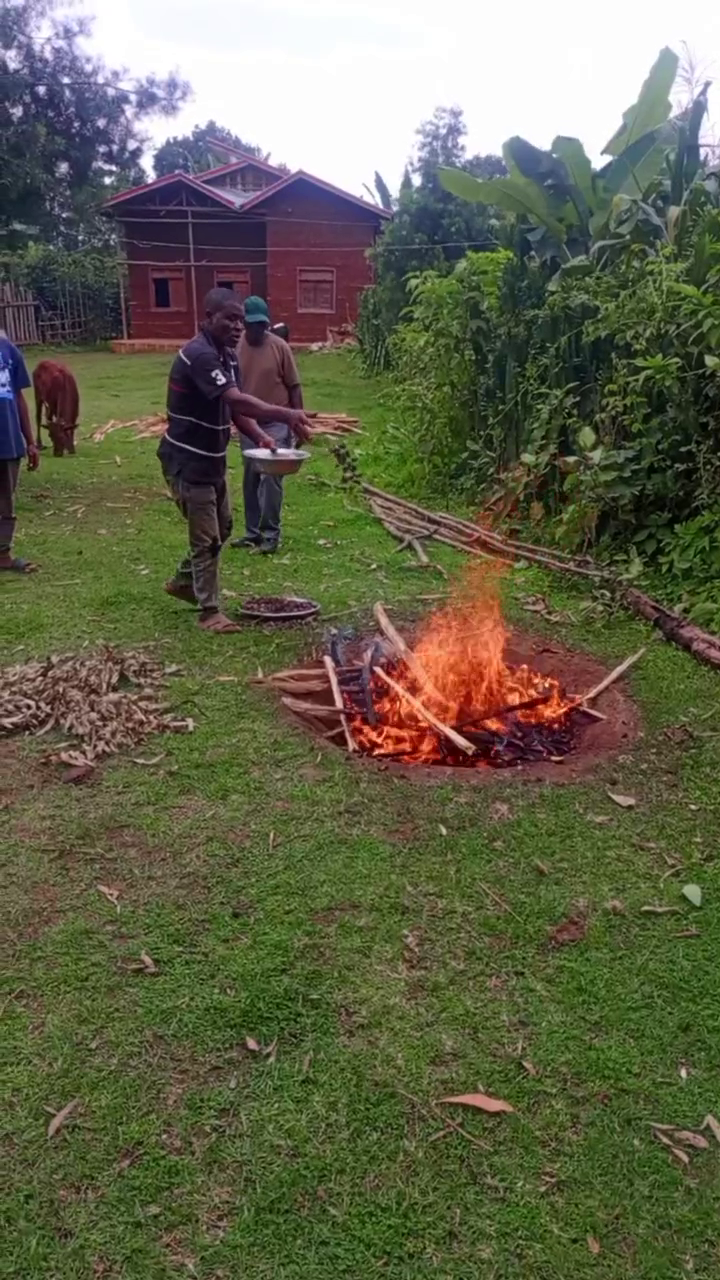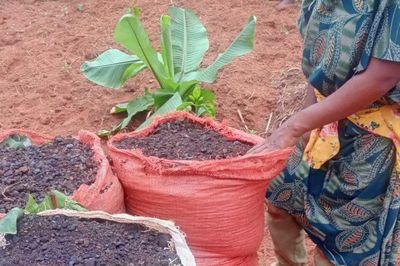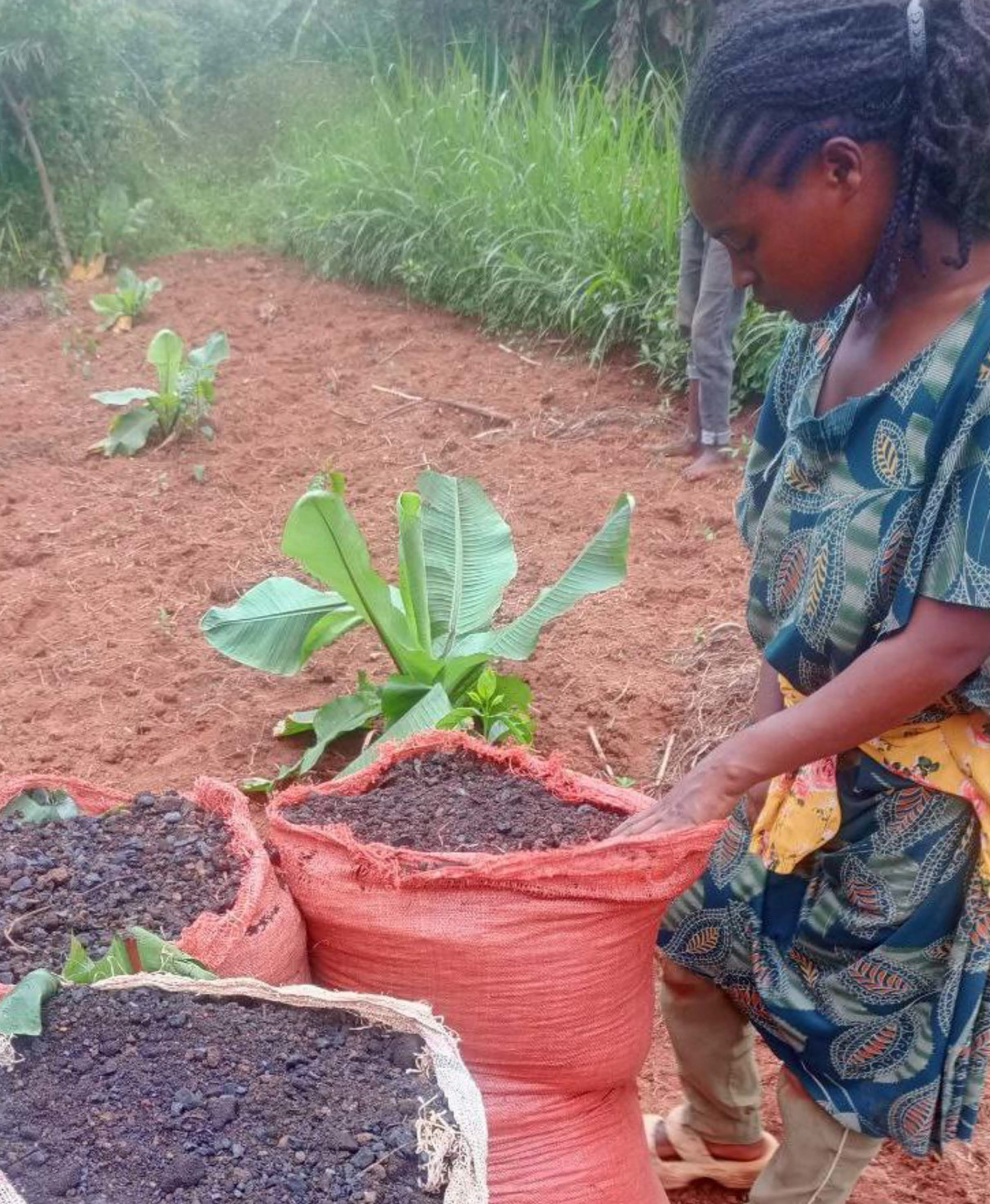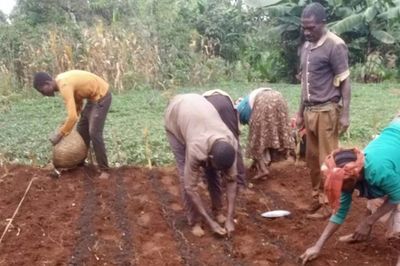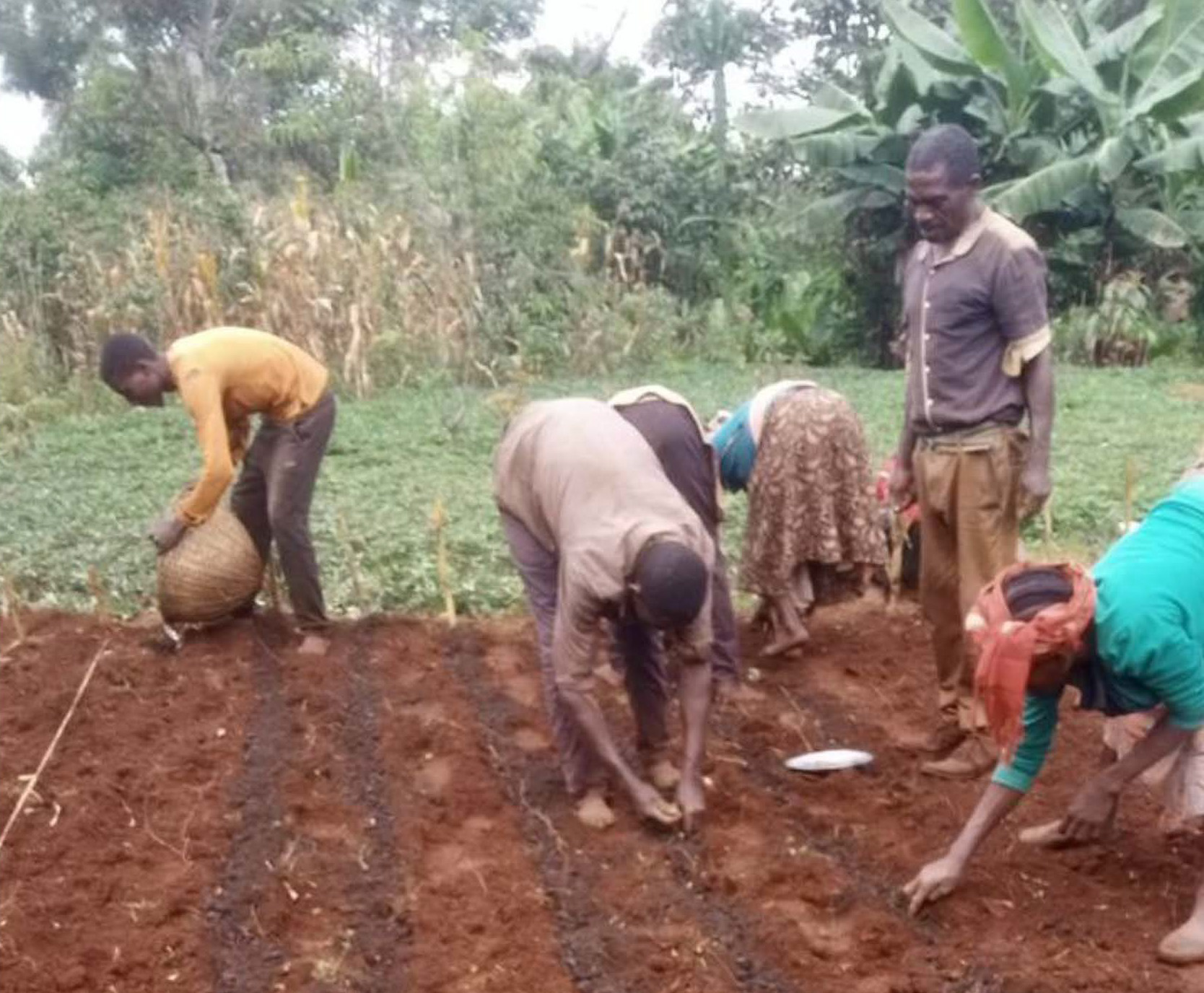ETH-Soil implementation progressing in Sidama
01.10.2025
Sidama is one of the most productive agricultural regions of Ethiopia but is facing serious challenges due to climate change, soil depletion and acidification. To combat the degradation of soils and resulting food insecurities, the ETH-Soil project facilitates autonomous production and usage of biochar and compost from local agricultural and agro-industrial residues through farmer-participatory field trials and strengthens smallholders capacity and independence.
From avocado waste to soil health in Sidama
In Sidama, large amounts of avocado waste materials are generated – both pruning residues from orchards and kernels from oil production – that remain largely unused. ETH-Soil is addressing this challenge by transforming these materials into a valuable resource. For the utilisation for biochar, the feedstock needs to have a very low moisture level for the process to run smoothly and without excessive emissions. Avocado kernels, however, dry slowly and start to rot when left in batches. To solve this issue, the Avocado kernels are being milled and subsequently dried. The initially manual process proved to be timely which is why project partner ANDRB trialed successfully the use of machines.The next step is to make this technology accessible to local farmers.
Moreover, these unexploited biomasses which are currently an environmental problem can be mobilised not only as input material for biochar production but also as alternative fuel for innovative small-scale pyrolysis cook-stoves that are developed in the context of the ETH-Soil project. In this way, they contribute to the reduction of deforestation.
Training the Trainers – Building Skills for Biochar-Based Fertilizer
Biochar and compost can be produced from many different types of biomass, whether from agricultural residues, such as avocado kernels and pruning, or from invasive species, such as Lantana camara, which is replacing native plant species in Sidama. But biochar-based fertiliser production is not just about having the right feedstock—it’s also about having the right skills.
To ensure knowledge reaches the broader farming community, ETH-Soil has implemented a “train-the-trainer” approach starting in May 2025. In the Woredas of Dale and Dara, 20 local development agents have been equipped to train100 farmers across 10 Kebeles the correct operation of a soil Kontiki in the first phase of the project. The training includes the preparation of the soil pit, selection of feedstocks, the administration of the pyrolysis process as well as the collection and storage of the produced biochar. Furthermore, the trainers learnt about the preparation of fertilisers from biochar and compost and how to apply it to their fields.
To make the use of biochar-based fertilisers more attractive, a system is being developed that rewards farmers financially for the carbon they sequester in soil. For this purpose, 10 observers were trained to oversee the certification process and ensure its credibility. Sidama benefits from the experience of colleagues at Jimma University, who have already gained experience with certification and who conducted the initial training of multipliers.
50 smallholder farmers start biochar field trials in Sidama
After receiving training in biochar production and usage, 50 regional farmers from five Kebeles have started field trials with self-produced biochar and (vermi-)compost in September on a total area of 2,5ha, to compare the results of biochar-based fertilisers with mineral (NPK) fertilisers. While the main goal of these experiments is to enable farmers to draw their own conclusions on the benefits of biochar-based fertilisers, the trials will also be monitored scientifically, especially with regards to soil nutrition and acidity. Key characteristics of the soil, biochar and compost will be analysed for each farmer.
Application of BBF produced from locally available unexploited residues improves soil fertility as well as enhances the soil with regard to climate resilience e.g. by enhancing the water holding capacity. The associated contribution to carbon sequestration, carbon dioxide removal and thus provided climate services is acknowledged by carbon credits that benefit farmers and local communities financially. These carbon credits could also offset emissions during harvest and transport of agricultural goods like avocados for export and avocado oil, hence improve the carbon footprint of the production process. Furthermore, locally produced organic fertilisers promise independence from the international fertiliser market for smallholder farmers who too often cannot afford or lack access to costly synthetic products
